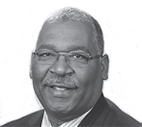According to a 2021 article by Jeff Clyde Corpuz, entitled “Adapting to the culture of ‘new normal’: an emerging response to COVID-19,” published in the Journal of Public Health, the term “new normal” first appeared during the 2008 financial crisis to refer to “the dramatic economic, cultural and social transformations that caused precariousness and social unrest, impacting collective perceptions and individual lifestyles.”
This definition is a fancy way of saying that when really, really bad things unexpectedly happen, people become afraid, especially when considering the real possibility that one’s way of life may be negatively impacted forever. The “new normal” indicates that due to unforeseen circumstances and crises, the need to adapt to handle these challenges positively or negatively will determine how one’s quality of life is influenced.
As was the case during the pandemic, fear and uncertainty reigned. The phrase “new normal” again became the buzzword, indicating that the virus would no longer be considered an anomaly but rather a fixture of our lives, just like the common cold or flu. As the pandemic continued to ravage the world, people began to realize that this condition was not a hoax and began to adapt to the crisis as best they could, hoping that the immediate danger would eventually subside; and that we could all return to some sense of normalcy. And for many, this was the case.
However, it seems that we have entered an era of the “new normal” In addition to the pandemic, other examples of “new normal” include poor air quality due to the smoke from Canadian forest fires drifting across America as well as sweltering heat spreading across the country and other extreme weather phenomena, such as tornadoes and flooding. And while some would say that this is a result of global warming, many would say that these phenomena are simply acts of God and are beyond our control, and therefore, the acceptance of these “new normal” are far more acceptable.
As I contemplated this, I began to reflect on other non-weather-related crises and circumstances that have become “new normals.” Including mass shootings, increased crime and violence, book banning, and historical revisionism, defined here as “the reinterpretation and distortion of history that is generally opposite of the actual historical record. A process usually meant to advance a socio-political agenda.” For proof of this specific example, I submit into evidence Florida’s 2023 Social Studies curriculum, which will include lessons on how “slaves developed skills” that could be used for “personal benefit.”
Other “new normal” include the political weaponization of misinformation, the continued existence of food deserts in communities of color, and the ever-widening cultural, social, racial, and economic divides. But wait, are all “new normal” unforeseen, or are they carefully planned in some instances, particularly when viewed through a political lens, as is the case with Florida’s Social Studies curriculum? And are these all “new normals”? Or are they simply the way things are and have always been? One must closely examine each crisis and circumstance to determine its origins and intentions. Regardless, understanding, adapting, and adjusting will remain the key to maintaining some semblance of a quality life and building a better society. And while we wait, we can wishfully dream of the day when respect, peace, and love for one another again become the “new normal.”

